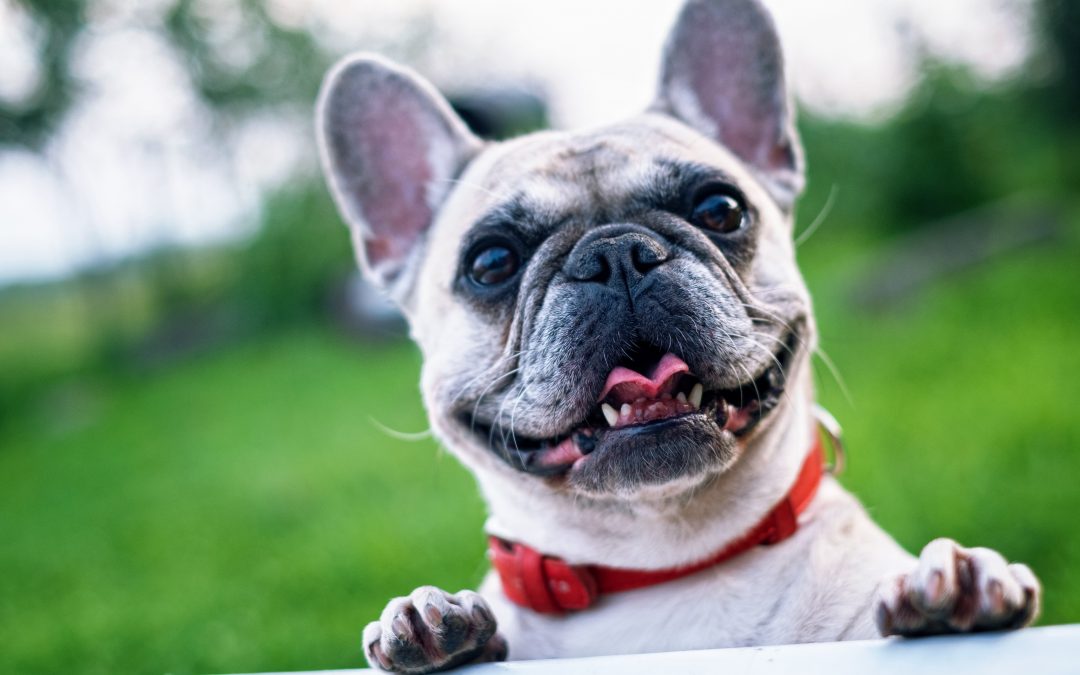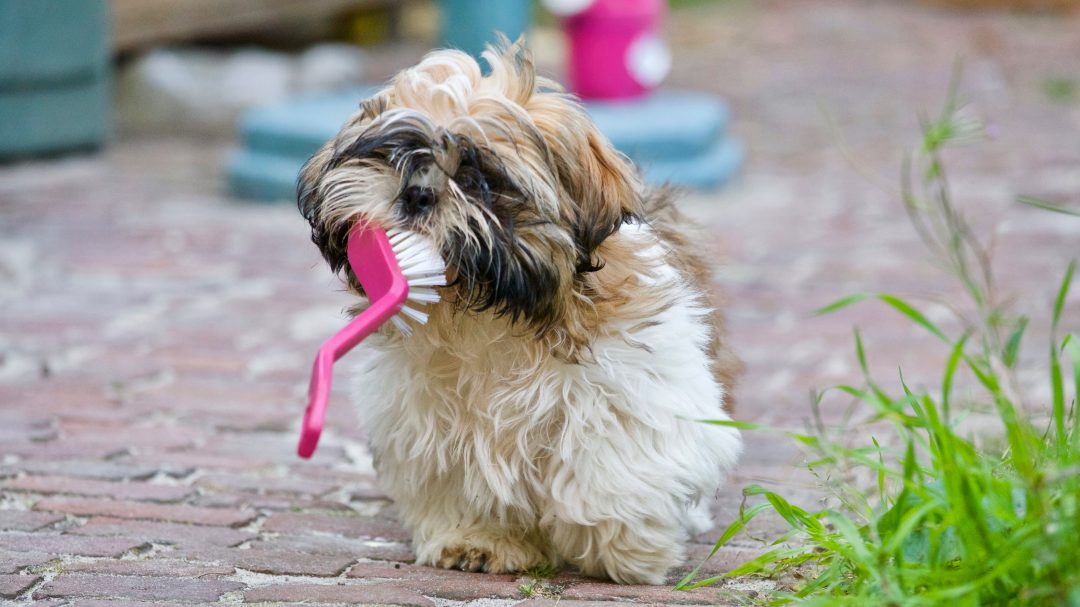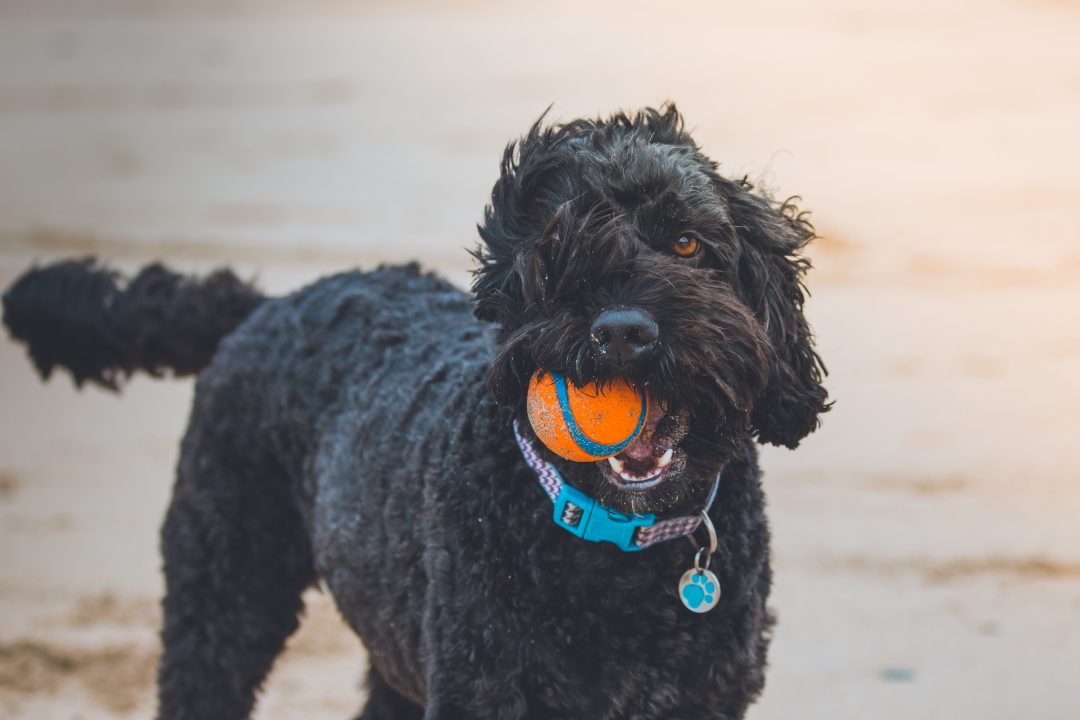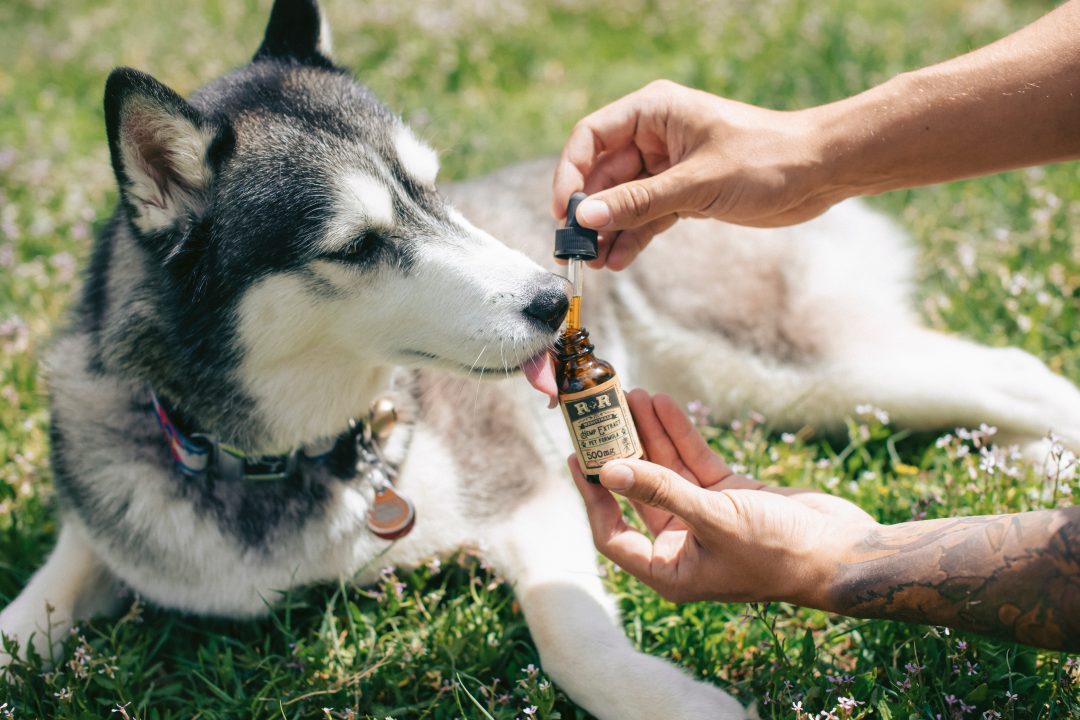
Taking Care of Your Dog’s Teeth
Oral healthcare is one of the most frequently overlooked and misunderstood aspects of owning a pet. For a lot of pet owners, routine check-ups are intuitive. They’re attentive to obvious changes in health like excessive shedding, bad bathroom experiences, or changes in appetite, but what about their pets breath? Or their teeth?
People may think dogs simply have bad breath from their habit of chewing or eating whatever they can get their jaws on, but in many cases extreme bad breath can be a sign of declining oral health. If you notice an excessive buildup of plaque, a strong stench, or unusual eating habits, it might be time for a visit to the vet! To prevent that, there are a few things you can do at home to help your pup keep their pearly whites fresh and clean.
Brush Up on Dental Hygiene

To start out, learn a little bit about dental hygiene for dogs. Find out what the signs and symptoms of periodontal disease and other mouth related issues are, that way if you notice these symptoms in your own pet, you’ll know how best to address them. The American Veterinary Medical Association has a pretty extensive page on what veterinary dentistry looks like, and many of the warning signs for more severe dental issues can be picked up earlier.
With that in mind, consult your vet on what the best oral health routine is for your own pet! Many dogs benefit from daily, or at least regular brushing. With a variety of toothpastes and different flavors, you can help keep your dog’s mouth clean and bright. Of course, some dogs may have allergies or an aversion to the toothpaste in question, at which point it’s probably okay to do a light brushing without toothpaste. Make sure you find a toothbrush that works for your dog as well. Just like people, dogs may be more or less sensitive to certain types of dog toothbrushes. And before you run to the store to pick up an Oral-B, remember that dogs need a specialized rubber bristle-styled “brush”.
To the Professionals
Another good habit to develop is regular trips to the dentist. Yes, both for you and you dog. Either as part of your routine vet visits, or on a less frequent basis, to specialized veterinary orthodontists. While this one might seem obvious, it’s important to keep tabs on all aspects of your pet’s health, which includes their teeth, gums, and mouth.
Regular dental trips can not only help you keep tabs on your pup’s dental health, it’s also a good way to learn about new treats, foods, or information that you can use to keep your dog happy and healthy. For example, there are tons of treats and toys on the market that say they’re good for your dog’s mouth. But how do you know for sure? Well, the most direct way is to ask your vet, or someone whose whole job is to care for dogs and their teeth. If you go down the treat path, they can also help you determine which treats might have secondary concerns, such as allergens or other dietary issues.
Treat Those Chompers Right

Like we just mentioned, treats and specialized dental chews can be a big help. With a whole market of tooth friendly toys, treats, and chews it can be a bit overwhelming to figure out what works best. With chews and treats, just ask your vet and do a bit of research to see if other people have experienced issues with the treats in question.
Toys
To start, just about anything tough that your dog chews on will improve their teeth health. Anything from bones, sticks, toys, chickens, furnitures. Of course, you probably don’t want them chewing on basically anything they can get their teeth on. It’s probably best to go for one of the many toys or hardened bones that dogs can chew and enjoy without tearing apart your whole house. Nylabone is a pretty decent brand, for example. They have scented, flavored dental toys that can last and give your dog something to play with and chew for a long time.
For more natural toys, you can always go for a hardened, smoked bone. Your dog will probably love the taste, it’s hard, and it won’t splinter. It’s worth noting that most bones that you’d find laying around, from table scraps, or boiled bones have a higher chance of breaking or splintering, which can be a choking or puncture hazard. So if you do opt for a bone, make sure it’s safe first. For both organic and inorganic toys, the tougher it is to chew up the better it will be.
Treats & Chews
For dental treats and chews, you can give your dog an occasional extra boost of dental cleaning power along with a special treat. The distinction is usually that treats are basically exactly what they sound like, a tasty, flavored treat just like any other. Chews tend to be larger and more about the straightforward cleaning power. Of course, both tend to come in flavors to entice your furry friends to keep their teeth plaque free.
Both dental chews and dental treats come in a huge variety of flavors, sizes, and styles. It’s important to keep in mind that your dog may have certain preferences or limitations when it comes to these treats. Beyond our usual recommendation to check with your vet before tossing out a few specialized dental milkbones, think about the simple things. Size is a big one that people overlook. You want a chew that your pet will actually have to chew, afterall. If it’s too big for their mouth, they may just drop it without chewing it up, and if it’s too small, they may simply swallow it without chewing. In both cases, they’ll completely miss the benefit of the chew!
Grin and Glow

It’s easy to overlook your dogs mouth, as even with bad breath, you might not recognize the signs of risky tooth health until your vet mentions it or your dog has trouble with eating or chewing. So when it comes to keeping your dog’s breath in check or your canine’s canines gleaming, it’s best to use a combination of all these techniques. Regular dental care at home is a great way to keep your dog healthy and happy, and remember to ask about dental health during your regular vet visits too.
So remember to take care of all your dog’s health needs, not just their vaccinations and regular checkups. Ask your vet for recommendations on which chews, treats, and toys work best for your dog’s breed or size! A healthy dog is a happy dog, and who doesn’t love that?


